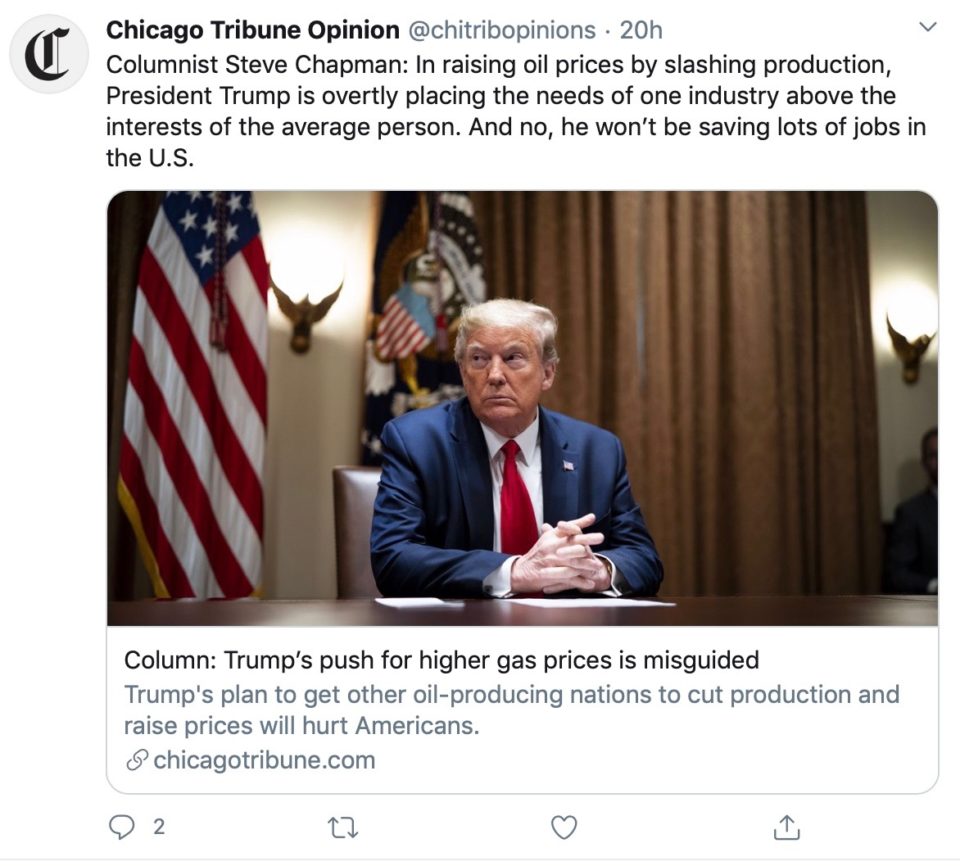Chicago Tribune Letter to the Editor: Column on Production Cut Deal Misleading
Editor’s Note: The following letter to the editor was submitted by IPRB to the Chicago Tribune on April 21 but has not been published by the paper.
A recent Chicago Tribune column headlined “Trump’s push for higher gas prices is misguided” hasn’t aged well for a number of reasons.

First of all, gasoline prices have actually declined significantly since the announcement of the deal to cut global oil production that the president helped broker. Pump prices could even drop below $1 a gallon, as oil prices continue to be extremely low due to the unprecedented demand shock attributable to the coronavirus pandemic.
Any policy aimed at deliberately raising gasoline prices would be insane to say the least – especially in an election year – and to suggest it was the president’s intent to do so is disingenuous. That is just one reason the columnist’s argument that the president’s actions were “overtly placing the needs of one industry above the interests of the average person” is also misleading.
It is important to remember why gasoline prices have been affordable for Americans for so long in the first place. U.S. oil and natural gas industry innovation over the past decade has allowed the United States to emerge as the world’s leading producer, become a net petroleum exporter, slash OPEC imports by 75 percent and make $3 gasoline a distant memory. And not only has the U.S. oil and natural gas industry kept pump prices low for American consumers, it is responsible for far more jobs than the columnist indicates.
The columnist’s states there are “only about 145,000” oil and gas extraction jobs in the U.S. But the upstream industry is actually directly responsible for more than three times that number of jobs, according to a recent Texas Independent Producers and Royalty Owners report. That report shows that the U.S. oil and natural gas industry directly employs more than 880,000 Americans overall, including 14,000-plus Illinoisans. Most of these jobs are high-skill, high-demand occupations, which explains why the average oil and natural gas industry wage is more than twice the private sector average. These jobs don’t exist in a vacuum, either. They bolster other industries, which is why the American Petroleum Institute estimates the industry supports 10.3 million U.S. jobs.
All this considered, a real gift to Russia and Saudi Arabia would be allowing the U.S. oil and natural gas industry to collapse and enabling hostile – and far less environmentally conscious – nations to reclaim the global market share they lost when the United States emerged as the world’s top producer.
